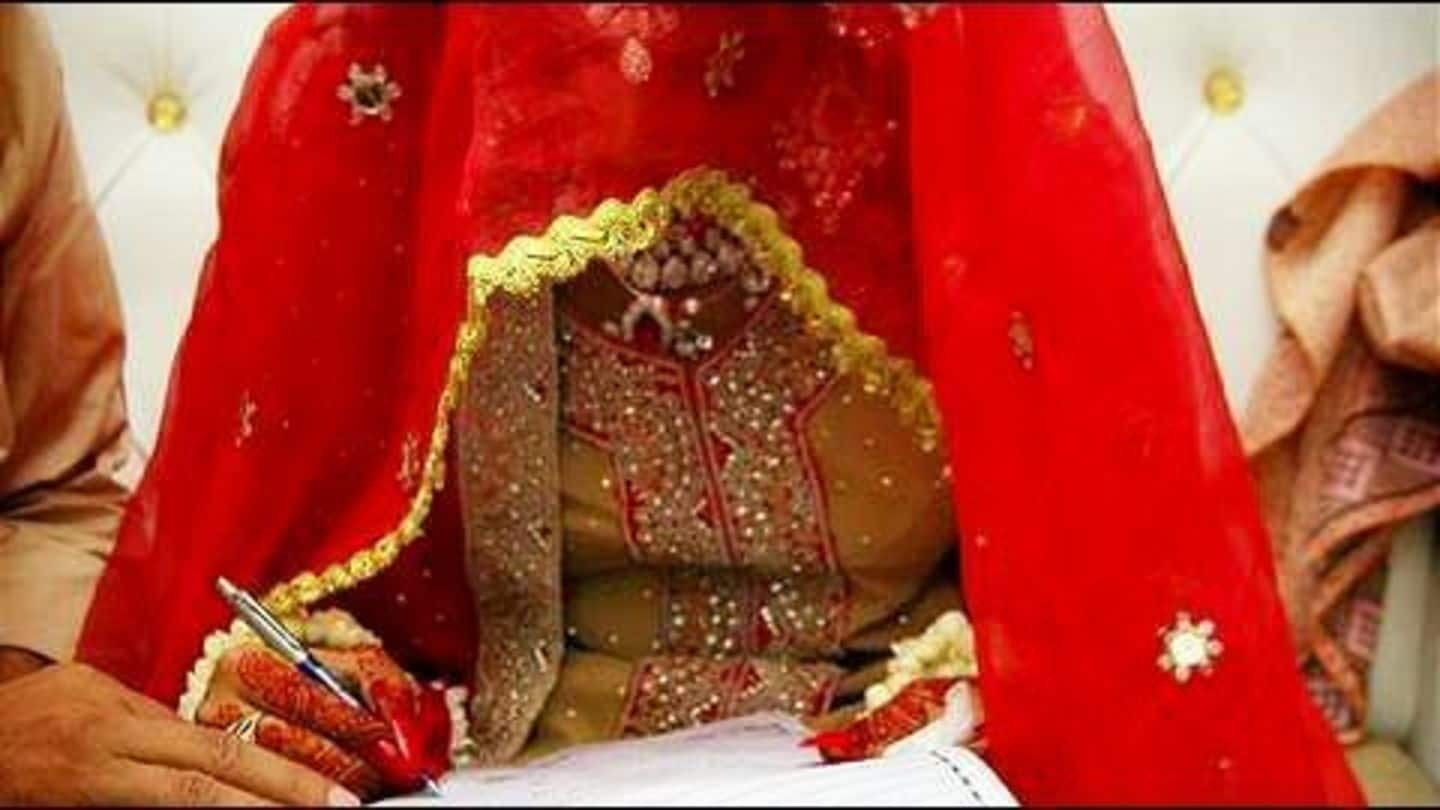
Pakistan rejects the bill to increase marriageable age for girls
What's the story
Pakistani lawmakers unanimously rebuffed the Child Marriage Restraint (Amendment) Bill that sought to increase the minimum age for girls to be married at, from 16 to 18 years. The National Assembly's Standing Committee on Religious Affairs called the amendment "un-Islamic". Ironically, the proposed amendment was also opposed by Hindu and Christian parliamentarians and not just the Muslim lawmakers.
Introduction
Apathy towards Pakistan's teenage brides
According to a UNICEF report, approximately 3 percent of Pakistani girls are married off before they turn 15, and 21 percent by the time they turn 18. The report also grimly states that "one in nine are married before 15". At this rate, within the next decade, another 100 million underage girls will be married, i.e. "25,000 new child brides every day for the next 10 years".
April 2014
Sind and Punjab outlaw child marriages
In April 2014, the Provincial Assembly of Sindh became the first province to pass a law forbidding child marriages. The Punjab Provincial Assembly followed it. The Council of Islamic Ideology termed it un-Islamic and reprimanded the Sindh Provincial Assembly for enacting the province-level Child Marriage Restraint Act. Notably, in Pakistan, there exists punishment for marrying a boy before he turns 18.
16 Jan 2016
Marvi Memon's move to increase marriageable age rejected
In January 2016, PML-N's Marvi Memon moved a bill to increase the marriageable age for girls in Pakistan. The bill proposed to intensify punishments in the current Act claiming that early marriage affects the health of the teenage brides. Council of Islamic Ideology committee rejecting the bill said that "introducing such age limits was a western idea", and thus contrary to Islamic culture.
Historical
Bill originally proposed in 2009
The bill was originally introduced by in 2009 by former Minister of National Assembly Dr. Attia Inayatullah but it ceased due to the dissolution of the national assembly.